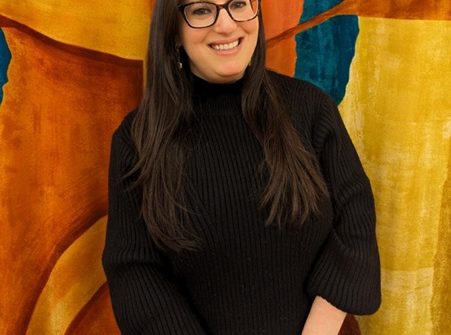At the beginning of our Torah portion Toledot we don’t know which way the story of Isaac is going to go. The word Toledot itself means both story and generations – how will Isaac’s future generations unfold? How will they live?
If things follow the natural order of Canaanite society then Esau, the older of the two twins than Jacob, will inherit the mantle of leader of the tribe and successor to his grandfather Abraham and father Isaac. The hallmark of our people will be to be grasping conquerors of other peoples, hunters, violent, impulsive, a warrior people, after the pleasure of the moment with no thought for the future.
But that is not how things turn out. Rather after twists and turns of the plot it is Jacob who becomes the tribal leader – Jacob who values home and family life, the thinking son, future focused, connected to the values that his grandfather Abraham and grandmother Sarah pioneered which set Judaism into motion. Jacob who in two Torah portions time will be given the new name of Israel, that all our generations carry today and will carry forwards into the future. A choice is made by Rebecca, Jacob and Esau’s mother and the future we live today becomes who we are as a people.
We are at a Toledot moment of human history right now with a choice to make and with the scientific and political knowledge to have a pretty strong idea of the consequences of that choice. Earlier this week I went to Glasgow to staff the stall of EcoSynagogue at the COP26 gathering of world leaders, activists of every kind, causes which work for a better environmental future and protesters who say ‘do it now – we are out of patience’.
The aims of COP26 are straightforward – there are just four of them: The Cop-26 climate conference this week in Glasgow is intended to be dedicated to putting into action the pledge made at the Cop-21 climate conference in Paris by more than 190 countries that they would work together to ensure that global warming will be limited to 2 degrees, or preferably 1.5 degrees, above pre-industrial levels.
If Cop-26 is successful in meeting its goals, then soon all the countries in the world will sign up to achieving net-zero carbon emissions by the mid 21st century, to protect communities and habitats most in danger from climate change, to invest at least $100bn per year in climate protection finance, especially targeted at poorer countries and to create a partnership between all governments, businesses and civil society organisations to make it happen.
Of course these aims are broken down into many tiny parts, just as the story of Jacob has incidents and conversations that change things. For example while I was at COP26 I spoke to the folks running a stall from Ghana – working to protect a single forest from bauxite mining which is home to 711 species of butterfly and 239 species of bird. I saw an exhibit of a three foot core of ice from the Antartic which through its depth was first laid in 1750, just before the dawn of the industrial age. This core has been analysed and shows the growing pollution of the world, it includes radioactive material that reached Antartica from nuclear bomb tests in the 1950’s, the pollution from steam engine smoke, the increased CO2 levels from today. What will it show from 2050 – a dying planet?
EcoSynagogue was there at COP26 because the Jewish community has to be part of the story, joining with all other faiths to help inspire that values that make us feel the duty to change our behaviours, our consumption patterns, what we demand of governments in order to get us to a new Toledot, a new story of our generations where we preserve and sustain the earth and do not year by year strangle it and choke it to destruction. On Monday night I will be chairing an online panel with representatives of EcoChuch, EcoIslam, EcoSikh and the Hindu Bhumi Global – on what faith communities can do to contribute to environmental action. Guess what – whatever faith we are we all live on the same planet! Do come join me.
The Jewish way is, when change is needed to bring about a better world, you start with yourself. What can I do to limit global warming? Then you encourage your family. Are there ways that we live that could be more environmentally sound? They you share these values with your community. How can my Synagogue be a great environmental citizen? EHRS has a long way to go but with EcoSynagogue we have a way of knowing what to do to improve. Then take it work, to your businesses or organisations, to the city, to the nation and to the world. This is the political level of COP26. There have got to be votes in combating climate change and leaving behind a better future for our generations.
It’s easy to be cynical – after all there were far fewer people listening at COP26 to Boris Johnson than there were to David Attenborough. It’s easy to say ‘if they don’t do it then I won’t’ – maybe referring to the household next to you that doesn’t make the changes you make or on a global scale, if China is slow to make changes then why should Britain. But that is not the Jewish way. The Jewish way is to stand up, get going, make change happen and find a way to change what seems to be the destiny of our future generation if they are not heading in the right direction.
That is what Rebecca did when she knew that Jacob would be the right son to lead the Jewish people. That is what we must do to combat climate change in our personal, family, community, working, national and international life.



